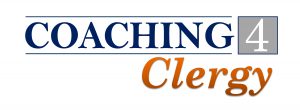
In a previous article, we discussed the coach’s role in evoking awareness in the client. Yet we must apply the same attention to ourselves.
When a coaching client introduces themselves and provides their topic, most if not all of us have assumptions we begin to make. For example, if it’s a relationship issue, we might be biased to think that all people of a certain gender share the same traits (“that’s just how men are”).
Whether or not that’s true, we just can’t go there as a coach. We must set those assumptions aside.
In a recent coach training session, I was impressed at the group’s openness to talk about and confront their own assumptions and beliefs. They could see how these were going to get in the way of applying their coaching skills.
I stepped back and let them brainstorm ideas for increasing awareness, and here’s what they came up with:
- Instead of going from one session to another, make sure there’s space in between, so you can breathe. This ensures you’re not at the end of your rope with no extra energy. When you’re at your limit, it’s harder to be self-aware.
- Keep asking questions. Questions like, “Say more about that,” give us the chance to not only hear the client but to hear what’s going on inside ourselves.
- Remember that you cannot coach everyone. There will be people or situations that would be better for you not to coach, so have several other coaches you can refer to.
- Work with your own coach. We’ve got to have some way of doing our own work.
What would I add to this great list? Not a thing. I would simply underscore everything my students said in that class. Thank you for the reminder to me, a veteran coach of 22+ years, about the ongoing, regular work we must do to maintain self-awareness. This is not just for new coaches; this is for all of us.

 Evoking Awareness in the Client
Evoking Awareness in the Client